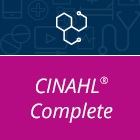Nursing & Health Sciences Research Journal
Abstract
Introduction: Cancer survivors must engage in a complex medical system that requires coordinating care, traveling for treatment, obtaining referrals, and scheduling multiple appointments with various teams. Cancer care facilities are implementing oncology navigation programs that help survivors navigate barriers in complex cancer care systems. However, new patients require additional support prior to their first visit. This article aims to describe the development and design of Miami Cancer Institute’s (MCI) Intake NOW program and evaluate its effects on scheduling-related outcomes among individuals seeking to establish cancer care. Methods: We conducted a retrospective data analysis before and after the MCI Intake NOW program, which took place from January to June 2023. We extracted Phase 2 and 3 data to reflect two months before and two months after implementation of Phase 3 of the pilot evidence-based practice project. We assessed five outcomes—24-hour meaningful contact, scheduling lead time, intake turnaround time, intake lead time, and eligibility to move up—using Student’s t-test, Mann-Whitney U test, and Chi-square test. Results: More patients experienced 24-hour meaningful contact with the Intake nurse in Phase 3. Additionally, median scheduling lead time and median intake turnaround time were significantly lower in Phase 3. Furthermore, median intake lead time was significantly lower, and fewer patients were eligible to move up in Phase 3. Discussion: The MCI Intake NOW program improved scheduling-related outcomes and outperformed many other cancer care facilities. The program can potentially be a model that cancer care facilities can use to streamline the intake process. However, further studies are needed to evaluate its potential utility fully.
Recommended Citation
Serna, R., Fernandez, S., Nestingen, M., & Breazeale, S. (2023). Evaluating a Novel Patient Intake Model for Newly Referred Patients Seeking Cancer Care: An Evidence-Based Practice Project. Nursing & Health Sciences Research Journal, 6(1), 122-130. https://doi.org/10.55481/2578-3750.1164
Creative Commons License

This work is licensed under a Creative Commons Attribution-NonCommercial-No Derivative Works 4.0 International License.


